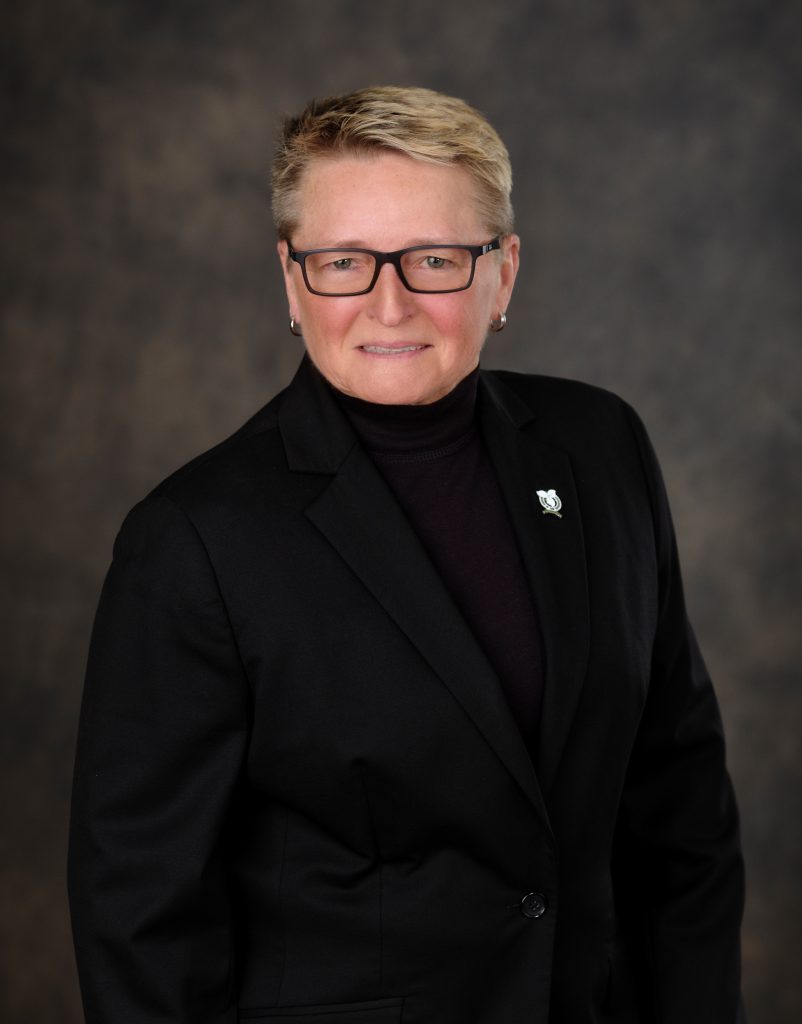
Amy Ramsay is the past president of the International Association of Women Police and the founding president of the Ontario Women in Law Enforcement. An advocate for increased education standards among law enforcement professionals, Ramsay retired on June 30, 2018 as a sergeant with the OPP. She holds various undergraduate, master’s and doctorate degrees in a wide-range of policing-related areas.
In a recent Blue Line, The Podcast, Ramsay joined editor Brieanna Charlebois for a conversation on the importance of education and diversity within the Canadian police service. The following is an excerpt from the podcast.
Q: Why do you feel education among police officers is important?
I don’t think there’s anything more important in policing these days than the topic of education. It will be the key component to the necessary changes we’re going to see in policing, hopefully soon.
I was reminded of an article that I read in the Toronto Star in March 2018. The author wrote, “The quality of policing is on the decline and a cultural shift is needed.” Three years later, those words bear more truth than ever before. Policing definitely needs a cultural change. I don’t think anyone will disagree with that, but that’s only going to come from higher educational standards. The other piece of this is the need to hire more women. We certainly know modern policing is founded on public trust and we need that public trust to be maintained. Unfortunately, that trust gets tested when police cause the death of a civilian or there is injury to a civilian, or the police behave in a manner that falls below the professional standards.
Education is the key. We must realize that we’ll never change the culture in policing without changing the educational standards. If you look up policing standards for Ontario, you’ll see you only need a high school diploma or equivalent. That standard is far too low. It’s fair to say that many police departments are hiring recruits with degrees, but we have to make it a standard. It has to be the starting point because, for too long, we’ve accepted people who simply don’t have the necessary skills to deal with what they are faced with out in the field and that’s what’s led to a lot of the problem facing police today.
Q: How do you think education can translate and help officers in the field?
In 2020, two American researchers suggested there are five reasons why police officers anywhere should have a university degree. They include things like educated officers are less likely to use violence. They’re also more likely to be problem-oriented, which means you are better equipped to identify the crime strategy within the community. Education also enables officers to relate better with community because, quite often, during their studies they were involved with the community. This gives them a better feel for what happens in the community, but it also shows how valuable the community can be in assisting them with investigations. Education also helps officers identify best practices and understand the reasons why practices either work or don’t work. Finally, education builds better leaders and there’s lots of research about that. Times have changed and education standards must change with it. It’s become increasingly clear: we need to hire officers with university undergraduate education and we need to hire more women.
Q: Why is it necessary and what are the benefits of hiring more women?
Since the 1970s, women have entered policing with significantly higher education than men and they’re more likely to use communication rather than force to solve problems. They tend to be far better at communicating in de-escalation situations, which is so important in any confrontation with police today.
Q: If an officer is looking to get an education, where do you think they should start?
You need to have a mix of social sciences and police learning. Policing skills are necessary but psychology, sociology and related studies are essential to a well-rounded education. You have to master a lot of things when you’re in the field. A large part of that is knowing how to deal with and understand people and situations so you’re not getting in constant confrontations. The benefit of a well rounded education is preparing officers for the difficult circumstances that are bound to arise.
Editor’s Note: This interview has been edited for clarity.
This episode of Blue Line
Podcast was sponsored by Wilfrid Laurier University. To listen to the full podcast, visit blueline.ca/podcast.
Print this page
 Amy Ramsay
Amy Ramsay